Middle East Political Economy Summer Institute Network
SUMMER INSTITUTE PARTICIPANTS
2017 Workshop: Students
Amal Ahmad
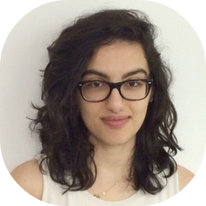
PhD in Economics at the University of Massachusetts, Amherst
Research Narrative: "The No-State Solution and Implications for the Palestinian Economy"
Amal Ahmad has a degree in Economics and Black Studies from Amherst College. After traveling to SOAS, the University of London, for a junior semester abroad, Amal developed a strong interest in development economics particularly as relates to the Middle East, and decided to move to the UK after finishing her BA. There she completed an MSc in Development Economics and also formed some of the strongest friendships with like-minded colleagues.
Following a two year stint in New York City doing corporate research on manufacturing industries, Amal decided to go back to pursuing development economics and enrolled in a PhD in Economics at the University of Massachusetts, Amherst, known for its variety of methodologies and points of view. Over the past two years she has focused on honing her technical skills, completing a field in econometrics, in preparation for writing a dissertation that combines institutional and historical knowledge with statistical analysis.
At UMass Amal also discovered her love for teaching, especially in a field like economics that can be intimidating to many students and where it is necessary to present concepts as clearly, concisely, and simply as possible to encourage student participation and learning. Over the next three years Amal will be working on her dissertation, with a focus on Middle East economics, and will be helping teach undergraduates in a variety of courses.
Research Narrative: "The No-State Solution and Implications for the Palestinian Economy"
Amal Ahmad has a degree in Economics and Black Studies from Amherst College. After traveling to SOAS, the University of London, for a junior semester abroad, Amal developed a strong interest in development economics particularly as relates to the Middle East, and decided to move to the UK after finishing her BA. There she completed an MSc in Development Economics and also formed some of the strongest friendships with like-minded colleagues.
Following a two year stint in New York City doing corporate research on manufacturing industries, Amal decided to go back to pursuing development economics and enrolled in a PhD in Economics at the University of Massachusetts, Amherst, known for its variety of methodologies and points of view. Over the past two years she has focused on honing her technical skills, completing a field in econometrics, in preparation for writing a dissertation that combines institutional and historical knowledge with statistical analysis.
At UMass Amal also discovered her love for teaching, especially in a field like economics that can be intimidating to many students and where it is necessary to present concepts as clearly, concisely, and simply as possible to encourage student participation and learning. Over the next three years Amal will be working on her dissertation, with a focus on Middle East economics, and will be helping teach undergraduates in a variety of courses.
Danya Al-Saleh
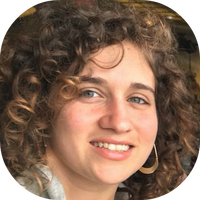
PhD in Geography at the University of Wisconsin, Madison
Research Narrative: "Between Knowledge and Hydrocarbons: An Institutional Ethnography A&M's Branch in Campus in Qatar"
Danya Al-Saleh is a PhD Student in Geography at the University of Wisconsin-Madison. For her B.A., she studied Political Science at UC Berkeley, followed by a MA in anthropology from CUNY Graduate Center. Her doctoral research focuses on the internationalization of U.S. higher education through branch campuses in the Arabian Peninsula, specifically in Qatar. Through this research, she is examining the shifting relationship between universities and the oil and gas industry in the realm of engineering education and research.
She also has conducted research on the role of the American University in Cairo in Cairo’s uneven urban development through a historical geographic study of the university’s 2008 move to its New Cairo campus. Additionally, her formal studies in Arabic over the past eight years (which have taken her to Cairo, Amman, and Doha) has provoked an interest in the shifting geographies of Arabic language education after 9/11 and the 2011 uprisings in the region.
Research Narrative: "Between Knowledge and Hydrocarbons: An Institutional Ethnography A&M's Branch in Campus in Qatar"
Danya Al-Saleh is a PhD Student in Geography at the University of Wisconsin-Madison. For her B.A., she studied Political Science at UC Berkeley, followed by a MA in anthropology from CUNY Graduate Center. Her doctoral research focuses on the internationalization of U.S. higher education through branch campuses in the Arabian Peninsula, specifically in Qatar. Through this research, she is examining the shifting relationship between universities and the oil and gas industry in the realm of engineering education and research.
She also has conducted research on the role of the American University in Cairo in Cairo’s uneven urban development through a historical geographic study of the university’s 2008 move to its New Cairo campus. Additionally, her formal studies in Arabic over the past eight years (which have taken her to Cairo, Amman, and Doha) has provoked an interest in the shifting geographies of Arabic language education after 9/11 and the 2011 uprisings in the region.
Kristen Alff
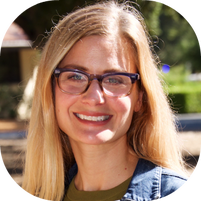
PhD in History at Stanford University
Research Narrative: "The Business of Property: Levantine Joint-stock Companies, Land, Law, and Capitalist Development Around the Mediterranean, 1850-1925"
Kristen Alff is an advanced doctoral student in the field of Modern Middle East History at Stanford University. She holds a BA from Boston University in British and American literature and an MA in Middle East Studies from the American University in Cairo. Kristen is interested in capitalism, law, and property rights. She is a runner and a reader of post-apocalyptic fiction. Kristen’s dissertation “The Business of Property: Levantine Joint-stock companies, Land, Law, and Capitalist Development Around the Mediterranean, 1850-1925,” examines the birth of Levantine joint-stock companies and the evolution of landed property ownership in the Levant as part of a broader argument about the nature and shape of capitalist development around the Mediterranean.
Research Narrative: "The Business of Property: Levantine Joint-stock Companies, Land, Law, and Capitalist Development Around the Mediterranean, 1850-1925"
Kristen Alff is an advanced doctoral student in the field of Modern Middle East History at Stanford University. She holds a BA from Boston University in British and American literature and an MA in Middle East Studies from the American University in Cairo. Kristen is interested in capitalism, law, and property rights. She is a runner and a reader of post-apocalyptic fiction. Kristen’s dissertation “The Business of Property: Levantine Joint-stock companies, Land, Law, and Capitalist Development Around the Mediterranean, 1850-1925,” examines the birth of Levantine joint-stock companies and the evolution of landed property ownership in the Levant as part of a broader argument about the nature and shape of capitalist development around the Mediterranean.
Nur Arafeh
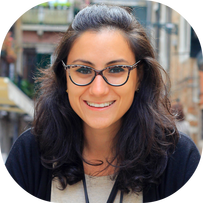
Policy Fellow at Al-Shabaka: The Palestinian Policy Network
Research Narrative: "Towards a Political Economy Analysis of Economic Resistance: The Case of Palestine"
Nur Arafeh is the Policy Fellow of Al-Shabaka: The Palestinian Policy Network, and a researcher in economic development. She previously worked as an Associate Researcher at the Palestine Economic Policy Research Institute (MAS), as a Visiting Lecturer of Economics at Al-Quds Bard College, and as a Teaching Assistant at Columbia University. Nur has a dual BA degree in political science and economics from the Paris Institute of Political Studies-Sciences Po and Columbia University, and holds an MPhil degree in development studies from the University of Cambridge. She will start her PhD studies at the University of Oxford in October 2017.
Research Narrative: "Towards a Political Economy Analysis of Economic Resistance: The Case of Palestine"
Nur Arafeh is the Policy Fellow of Al-Shabaka: The Palestinian Policy Network, and a researcher in economic development. She previously worked as an Associate Researcher at the Palestine Economic Policy Research Institute (MAS), as a Visiting Lecturer of Economics at Al-Quds Bard College, and as a Teaching Assistant at Columbia University. Nur has a dual BA degree in political science and economics from the Paris Institute of Political Studies-Sciences Po and Columbia University, and holds an MPhil degree in development studies from the University of Cambridge. She will start her PhD studies at the University of Oxford in October 2017.
Zachary Davis Cuyler
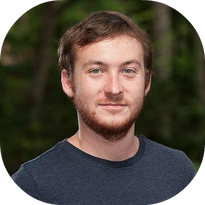
Joint PhD in History and Middle East & Islamic Studies at New York University
Research Narrative: "A Predestined Country? Fossil-Fueled Infrastructure and the Assembly of the Lebanese Intermediary State, 1890-1970"
Zachary Davis Cuyler is a PhD student in History and Middle East & Islamic Studies at New York University. He holds an MA in Arab Studies from Georgetown University and is a graduate of the University of Texas at Austin. His academic research focuses primarily on the history and politics of energy and infrastructure in Lebanon and Syria in the mid-20th century. His peer-reviewed publications include "The Arab World's Non-Linear Electricity Transitions" in Middle East Report and "Tapline, Welfare Capitalism, and Mass Mobilization in Lebanon, 1950–1964" in Working for Oil (forthcoming, Palgrave MacMillan).
Research Narrative: "A Predestined Country? Fossil-Fueled Infrastructure and the Assembly of the Lebanese Intermediary State, 1890-1970"
Zachary Davis Cuyler is a PhD student in History and Middle East & Islamic Studies at New York University. He holds an MA in Arab Studies from Georgetown University and is a graduate of the University of Texas at Austin. His academic research focuses primarily on the history and politics of energy and infrastructure in Lebanon and Syria in the mid-20th century. His peer-reviewed publications include "The Arab World's Non-Linear Electricity Transitions" in Middle East Report and "Tapline, Welfare Capitalism, and Mass Mobilization in Lebanon, 1950–1964" in Working for Oil (forthcoming, Palgrave MacMillan).
Omnia Khalil
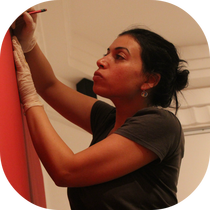
PhD in Cultural Anthropology at the Graduate Center, City University of New York
Research Narrative: "Wikalet al-Bālāḥ Cairo, Egypt"
Omnia Khalil is PhD student, City University of New York, anthropology program, and adjunct lecturer at Hunter College, CUNY. She is co-founder of 10 Tooba| Applied Research in the Built Environment. She is an engaged scholar and urban anthropologist and has over ten years’ experience in social mapping and participatory community urban action planning. She publishes about social urban justice in Assafir Alarabi.
Omnia was heading a participatory community action plan in Ramlet Bulaq, and was a post MA fellow in the anthropology department at AUC, where she finished her thesis in cultural anthropology. Her MA thesis is titled “The People of The City, Space, Laboring and Power; Unraveling the How in Ramlet Bulaq”. During her MA research, Omnia participated in a one-semester exchange program with Jawaharlal Nehru University (Delhi, India).
In 2012 Omnia held the exhibit Egyptian Urban Action, which lent a voice to deprived communities and the policy of development-based relocation through a 25 minute documentary focusing on the historic communities of Al-Hattabah and Kom Ghurab and other similar communities in Cairo. Since then, Omnia has regularly given talks about her work, in Egypt and abroad.
Omnia received her BSc in 2006 at Cairo University’s Architecture Department, where her thesis project on the Tanneries Quarter of Old Cairo was featured at that year’s Venice Architecture Biennale as well as receiving an award from the WA World Architecture Community.
Research Narrative: "Wikalet al-Bālāḥ Cairo, Egypt"
Omnia Khalil is PhD student, City University of New York, anthropology program, and adjunct lecturer at Hunter College, CUNY. She is co-founder of 10 Tooba| Applied Research in the Built Environment. She is an engaged scholar and urban anthropologist and has over ten years’ experience in social mapping and participatory community urban action planning. She publishes about social urban justice in Assafir Alarabi.
Omnia was heading a participatory community action plan in Ramlet Bulaq, and was a post MA fellow in the anthropology department at AUC, where she finished her thesis in cultural anthropology. Her MA thesis is titled “The People of The City, Space, Laboring and Power; Unraveling the How in Ramlet Bulaq”. During her MA research, Omnia participated in a one-semester exchange program with Jawaharlal Nehru University (Delhi, India).
In 2012 Omnia held the exhibit Egyptian Urban Action, which lent a voice to deprived communities and the policy of development-based relocation through a 25 minute documentary focusing on the historic communities of Al-Hattabah and Kom Ghurab and other similar communities in Cairo. Since then, Omnia has regularly given talks about her work, in Egypt and abroad.
Omnia received her BSc in 2006 at Cairo University’s Architecture Department, where her thesis project on the Tanneries Quarter of Old Cairo was featured at that year’s Venice Architecture Biennale as well as receiving an award from the WA World Architecture Community.
Paul Kohlbry
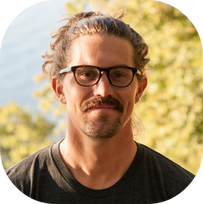
PhD in Anthropology at Johns Hopkins University
Research Narrative: "Of plots and deeds: Land registration and the making of property in the West Bank"
Paul Kohlbry is a PhD Candidate in the Department of Anthropology at The Johns Hopkins University. He is currently completing a dissertation on the institution of private property in the West Bank, based on archival and ethnographic research of land registration initiatives: Jordanian land tilting in the 1950s and 1960s, Israeli state land surveys, "first registration" undertaken by private Israeli and Palestinian real estate companies, and contemporary Palestinian Authority land titling projects. Focusing on rural lands, his work tracks the changing legal, practical and technical understandings of private property; the material relations it has facilitated; and the role it has played in the political and economic projects of settlers, cultivators and capitalists. His research has been supported by the National Science Foundation, the Wenner-Gren Foundation, and the Palestinian American Research Center.
Research Narrative: "Of plots and deeds: Land registration and the making of property in the West Bank"
Paul Kohlbry is a PhD Candidate in the Department of Anthropology at The Johns Hopkins University. He is currently completing a dissertation on the institution of private property in the West Bank, based on archival and ethnographic research of land registration initiatives: Jordanian land tilting in the 1950s and 1960s, Israeli state land surveys, "first registration" undertaken by private Israeli and Palestinian real estate companies, and contemporary Palestinian Authority land titling projects. Focusing on rural lands, his work tracks the changing legal, practical and technical understandings of private property; the material relations it has facilitated; and the role it has played in the political and economic projects of settlers, cultivators and capitalists. His research has been supported by the National Science Foundation, the Wenner-Gren Foundation, and the Palestinian American Research Center.
Anna Levy
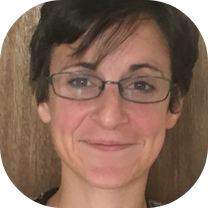
Independent Scholar
Research Narrative: "Outsourcing Governance Across Borders: Geography, Bureaucracy, and Dissent"
Anna Levy has worked over the past ten years at the intersection of accountability politics and structural inequality, displacement and migration, collective action in the digital age, political and economic transitions, and historical memory in these contexts. She currently works as a freelance researcher and policy analyst on issues related to structural inequality in the digital age. In the past, her work has focused on US foreign policy legacies in Latin America and the Middle East, and more recently on digital and political transitions in the Levant region.
Her project for the Political Economy Summer Institute focuses on the phenomenon of governance by non-governmental organizations and multilateral institutions within and across borders, centered around Jordan.
Anna’s interest in Jordan began while living there between 2010-11 when the various Arab uprisings began. At the time, aid organizations (one of which she worked for) openly weighed the costs of supporting civilians’ demands for change against future funding prospects or compromised state cooperation on their other projects. Jordan, at the time, was host to a seemingly permanent Palestinian refugee population and a newly arrived Iraqi refugee population. Soon after, a Syrian refugee population would arrive. The Government of Jordan’s arrangement with international institutions and NGOs in providing administrative and public services to these populations while denying them political and civil rights further raised questions about the short- and long-term role of international organizations between service provision and political change. Finally, the US invasion of Iraq and ongoing military and economic support for Israel, which both contribute to the status quo of refugee realities in Jordan, were another factor of interest in understanding conditions of decision-making, political agency, and governmentality for various populations in the country.
Anna has held research and editorial roles on topics related to political transition, aid and accountability politics, and digital ethics at Princeton and New York Universities. In 2014, she served on the founding advisory network for Beautiful Rising, a digital exchange for creative political activism in authoritarian or restrictive political environments, and in 2012, she co-managed a study examining the politics of bilateral donor policies on transparency and accountability in conflict-affected and post-conflict countries. Since 2008, Anna has studied and participated in various fora focused on the politics of memory and the processes by which communities confront narrative and institutionalized legacies of economic and political violence. She is currently a host of the New Books in World Affairs podcast, where she interviews authors of new books on critical political economy, postcolonial studies, the politics of infrastructure, critical race and ethnic studies and, history and historical memory.
Anna holds a Master's Degree from Columbia University, where she studied political and economic transitions, and Middle Eastern regional studies. She earned a BA in Legal and Political Philosophy from the State University of New York at Binghamton in 2006.
Research Narrative: "Outsourcing Governance Across Borders: Geography, Bureaucracy, and Dissent"
Anna Levy has worked over the past ten years at the intersection of accountability politics and structural inequality, displacement and migration, collective action in the digital age, political and economic transitions, and historical memory in these contexts. She currently works as a freelance researcher and policy analyst on issues related to structural inequality in the digital age. In the past, her work has focused on US foreign policy legacies in Latin America and the Middle East, and more recently on digital and political transitions in the Levant region.
Her project for the Political Economy Summer Institute focuses on the phenomenon of governance by non-governmental organizations and multilateral institutions within and across borders, centered around Jordan.
Anna’s interest in Jordan began while living there between 2010-11 when the various Arab uprisings began. At the time, aid organizations (one of which she worked for) openly weighed the costs of supporting civilians’ demands for change against future funding prospects or compromised state cooperation on their other projects. Jordan, at the time, was host to a seemingly permanent Palestinian refugee population and a newly arrived Iraqi refugee population. Soon after, a Syrian refugee population would arrive. The Government of Jordan’s arrangement with international institutions and NGOs in providing administrative and public services to these populations while denying them political and civil rights further raised questions about the short- and long-term role of international organizations between service provision and political change. Finally, the US invasion of Iraq and ongoing military and economic support for Israel, which both contribute to the status quo of refugee realities in Jordan, were another factor of interest in understanding conditions of decision-making, political agency, and governmentality for various populations in the country.
Anna has held research and editorial roles on topics related to political transition, aid and accountability politics, and digital ethics at Princeton and New York Universities. In 2014, she served on the founding advisory network for Beautiful Rising, a digital exchange for creative political activism in authoritarian or restrictive political environments, and in 2012, she co-managed a study examining the politics of bilateral donor policies on transparency and accountability in conflict-affected and post-conflict countries. Since 2008, Anna has studied and participated in various fora focused on the politics of memory and the processes by which communities confront narrative and institutionalized legacies of economic and political violence. She is currently a host of the New Books in World Affairs podcast, where she interviews authors of new books on critical political economy, postcolonial studies, the politics of infrastructure, critical race and ethnic studies and, history and historical memory.
Anna holds a Master's Degree from Columbia University, where she studied political and economic transitions, and Middle Eastern regional studies. She earned a BA in Legal and Political Philosophy from the State University of New York at Binghamton in 2006.
Jana Nakhal

Asfari Institute for Civil Society and Citizenship-American University in Beirut
Research Narrative: "Women Cooperatives in Lebanon: A Model of Organization and Economic Production"
Jana Nakhal is a feminist communist researcher and organizer from Beirut and Sour. Jana is an urban planner and designer who works in slums and refugee camps with different marginalized communities. Jana writes in Al-Akhbar newspaper and Al-Adab magazine on art, politics, women, refugee camps and the city.
She had an undergrad in Landscape Architecture, in which she worked on the production of political historical discourse through space. She then had a Master in Urban Design from the American University of Beirut. Specializing in slums and the different forms of informal housing, her thesis was based on a three-year ethnographic study in Sour city, mapping the dwellers’ relationship with space and proposing a blueprint of low-income housing based on existing socio-spatial practices.
For four years, she lived and conducted anthropological research in the south of Lebanon and Palestinian refugee camps. Her writings in the local newspapers and magazines are one way of producing a body of work which can be accessed by the communities she works with.
She worked for eight months on an ethnographic study in four villages in Marjeyoun, a rural area which was under Israeli occupation till 2000. The study investigated the situation of the agricultural sector in Marjeyoun, trying to understand how do farmers adapt and organize to compensate the absence of support from the state.
She published in Kohl, "Women as Space/Women in Space; Relocating our Bodies and Rewriting Gender in Space" and "External Pleasure, Internal Violence? A Conversation on Conformity, Sex Work, and Language" and is working on a paper on "Female Syrian refugees in Lebanon: mechanisms of return and belonging".
She now has a grant from Asfari Institute for Citizenship and Civil Society, to produce an analysis of the situation of a women cooperative in the south of Lebanon.
Research Narrative: "Women Cooperatives in Lebanon: A Model of Organization and Economic Production"
Jana Nakhal is a feminist communist researcher and organizer from Beirut and Sour. Jana is an urban planner and designer who works in slums and refugee camps with different marginalized communities. Jana writes in Al-Akhbar newspaper and Al-Adab magazine on art, politics, women, refugee camps and the city.
She had an undergrad in Landscape Architecture, in which she worked on the production of political historical discourse through space. She then had a Master in Urban Design from the American University of Beirut. Specializing in slums and the different forms of informal housing, her thesis was based on a three-year ethnographic study in Sour city, mapping the dwellers’ relationship with space and proposing a blueprint of low-income housing based on existing socio-spatial practices.
For four years, she lived and conducted anthropological research in the south of Lebanon and Palestinian refugee camps. Her writings in the local newspapers and magazines are one way of producing a body of work which can be accessed by the communities she works with.
She worked for eight months on an ethnographic study in four villages in Marjeyoun, a rural area which was under Israeli occupation till 2000. The study investigated the situation of the agricultural sector in Marjeyoun, trying to understand how do farmers adapt and organize to compensate the absence of support from the state.
She published in Kohl, "Women as Space/Women in Space; Relocating our Bodies and Rewriting Gender in Space" and "External Pleasure, Internal Violence? A Conversation on Conformity, Sex Work, and Language" and is working on a paper on "Female Syrian refugees in Lebanon: mechanisms of return and belonging".
She now has a grant from Asfari Institute for Citizenship and Civil Society, to produce an analysis of the situation of a women cooperative in the south of Lebanon.
Cihan Tekay
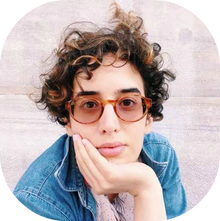
PhD in Anthropology at the Graduate Center, City University of New York
Research Narrative: "Electrifying the Nation-State: Generating Citizens in Turkey's Early Republican Era (1923-1950)"
Cihan Tekay is a PhD Student in Anthropology at The Graduate Center, City University of New York. Her dissertation research is on the politics of the electrical infrastructure in Turkey during the interwar period, focusing on state formation, international political economy and perceptions of modernity. She received an International Dissertation Research Fellowship from the Social Science Research Council for this project, as well as a Doctoral Student Research Grant and a Provost’s Pre-Dissertation Research Fellowship from The Graduate Center during its development. She presented preliminary findings of her current project on Turkey’s electrification and the history of the politics of infrastructure at Political Economy Project’s “Migrant States, Mobile Economies: Rethinking the Political in Contemporary Turkey” workshop at George Mason University in 2015. She is currently working on her comprehensive exams in Anthropology of the State & Infrastructures of the Middle East, as well as expanding the scope of her dissertation research focus to include European political and economic relations with Turkey during the interwar years. Previously, she graduated from Hampshire College, where she studied the intersections of gender and the aesthetics of Turkish nation-building, and pursued a Master’s degree in Sociology at Boğazici University, where she did her thesis research on the role of collective memory in an all-women’s strike in a Free Trade Zone in Southern Turkey. She has presented her research on the role of gender in social movements in Turkey at various conferences and workshops at Columbia University, New School for Social Research, Harvard University, and American Anthropological Association. She has been teaching undergraduate courses in the City University of New York system since 2012, including Introduction to Cultural Anthropology, Sex and Culture, and Sociological Theory. She has also served as a Quantitative Reasoning Fellow at Medgar Evers College, where she developed grant-writing, research and professional development workshops for faculty. She is co-chair of the Middle Eastern Studies Organization at The Graduate Center. She has served as co-editor of Jadaliyya’s Turkey page since 2013. She is a member of Academics for Peace in Turkey.
Research Narrative: "Electrifying the Nation-State: Generating Citizens in Turkey's Early Republican Era (1923-1950)"
Cihan Tekay is a PhD Student in Anthropology at The Graduate Center, City University of New York. Her dissertation research is on the politics of the electrical infrastructure in Turkey during the interwar period, focusing on state formation, international political economy and perceptions of modernity. She received an International Dissertation Research Fellowship from the Social Science Research Council for this project, as well as a Doctoral Student Research Grant and a Provost’s Pre-Dissertation Research Fellowship from The Graduate Center during its development. She presented preliminary findings of her current project on Turkey’s electrification and the history of the politics of infrastructure at Political Economy Project’s “Migrant States, Mobile Economies: Rethinking the Political in Contemporary Turkey” workshop at George Mason University in 2015. She is currently working on her comprehensive exams in Anthropology of the State & Infrastructures of the Middle East, as well as expanding the scope of her dissertation research focus to include European political and economic relations with Turkey during the interwar years. Previously, she graduated from Hampshire College, where she studied the intersections of gender and the aesthetics of Turkish nation-building, and pursued a Master’s degree in Sociology at Boğazici University, where she did her thesis research on the role of collective memory in an all-women’s strike in a Free Trade Zone in Southern Turkey. She has presented her research on the role of gender in social movements in Turkey at various conferences and workshops at Columbia University, New School for Social Research, Harvard University, and American Anthropological Association. She has been teaching undergraduate courses in the City University of New York system since 2012, including Introduction to Cultural Anthropology, Sex and Culture, and Sociological Theory. She has also served as a Quantitative Reasoning Fellow at Medgar Evers College, where she developed grant-writing, research and professional development workshops for faculty. She is co-chair of the Middle Eastern Studies Organization at The Graduate Center. She has served as co-editor of Jadaliyya’s Turkey page since 2013. She is a member of Academics for Peace in Turkey.


